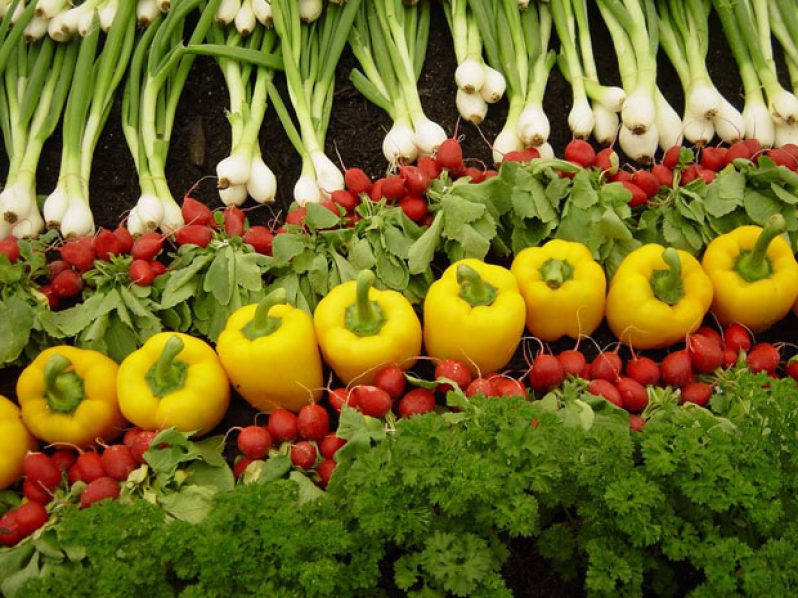GOVERNMENT has invested some $80M over the last year in advancing the work of the Pesticide and Toxic Chemicals Control Board (PTCCB), which also receives grant funding from other sources.However, Agriculture Minister, Dr. Leslie Ramsammy, in an interview with the Guyana Chronicle, explained that the successes made, in particular as it relates to the obligations under international agreements, have both its advantages and disadvantages.
He said, “While we have these international agreements, the timely implementation of those is critical. Currently it (implementation) is a problem for some countries and it creates a problem for Guyana.”
According to him, Guyana is making progress after endorsing a National Implementation Plan (NIP), under the Stockholm Convention on Persistent Organic Pollutants (POPs), which listed chemicals for phased out use and others for complete banning.
“Guyana, being a signatory, has been following the rules,” Ramsammy said.
On the other hand, the minister noted that the challenge, despite the successes made, particularly with phasing out chemicals used to kill fungi that affect food crops, will be seen in the export market.
He said, “If the countries that are closely linked through export are not in sync with how they implement the Stockholm convention, we will end up with a messy situation.
“With the support of GEF (Global Environment Facility) Guyana can say we are ahead of some countries.
“All of us in the Caribbean are signatories to the Convention and we are all supposed to phase out, for example, the use of methyl bromide by 2012, which was used to fumigate crops before we export them, so no pest will be exported out of Guyana.
“Guyana has used alternatives; but the trouble is if a country we are exporting to is not at the same stage as we are and still their regulations utilize methyl bromide and require methyl bromide, we will be in trouble.
“When we export fresh products to countries that are lagging behind and require methyl bromide, when the product arrives at their port, they are required to be fumigated with methyl bromide.
“The result is that the ship either returns to Guyana or we fumigate on board before it goes into the country.”
Ramsammy maintained that Guyana will continue its efforts to meet its international obligations.
REGULATION
Asked about regulations in the sector, given the guidelines set out by the Stockholm Convention, the minister noted that 154 vendors have been licensed as distributors of the chemicals.
He said, “The reasoning, when people hear that number is that we have 154 vendors, but no we do not have 154 vendors.
“It would be nice; but the truth is we still have unregulated vendors, which is why we have been focused on educating vendors themselves, so they are better aware of who they sell to and how to store.
“We are seeing the impacts of that education and we are also working with famers to ensure they use these chemicals more responsibly.”
He pointed out that there are a large number of chemicals that come into the country, and as indispensable as they are, they have to be regulated.
“As an agriculture country, they are indispensable yes, but they have their own dangers,” Ramsammy said. “The ministry registered 147 different pesticides for importation. This is a large group that has to be regulated.”
He added that in his view, Guyanese are still “generally reckless” in the use of these chemicals.
The minister said, “We have very little appreciation for their dangers. We have a healthy appreciation for their uses, but it is the dangers to our health and well-being, as well as the environmental impact we have to be cognizant of, and for all of these reasons we regulate their use….it is this recognition that saw us establishing the Pesticide and Toxic Chemicals Control Act.”
He stated that while the chemicals allowed are being regulated and those slated for phasing out are being replaced by alternatives, others that have been banned under the Convention are the focus of talks with the Food and Agricultural Organisation (FAO).
“Those on our hands have to be stockpiled and we are working with the FAO on building storage facility for these obsolete chemicals, and working on how these will be destroyed,” Ramsammy said.
UPGRADING
The Agriculture Minister underscored another major development with the PTCCB, the $5M works in 2013 to upgrade the laboratory.
“It is the most up-to-date laboratory to ensure that the food we use and export are safe,” he said.
The laboratory is now better equipped to carry out quality control analyses for pesticides, and has an increased capability to perform evaluations of the kinds and levels of pesticides and toxic residues in plants, soils, crops and animal produce, among other functions that see the lab assisting growers to comply with established international standards, especially for target markets.
Ramsammy explained that the lab works with the National Agricultural Research and Extension Institute (NAREI), the Guyana Sugar Corporation (GuySuCo) and the Guyana Rice Development Board (GRDB).
“Working with these other entities, as well as the Caribbean Agricultural Research and Development Institute (CARDI), we are examining several other new developments to improve our output,” he said.
The minister stressed the importance of the work of the PTCCB and maintained that its functions will continue to be improved and upgraded in the interest of advancing the agriculture sector.
Written By Vanessa Narine



.jpg)








